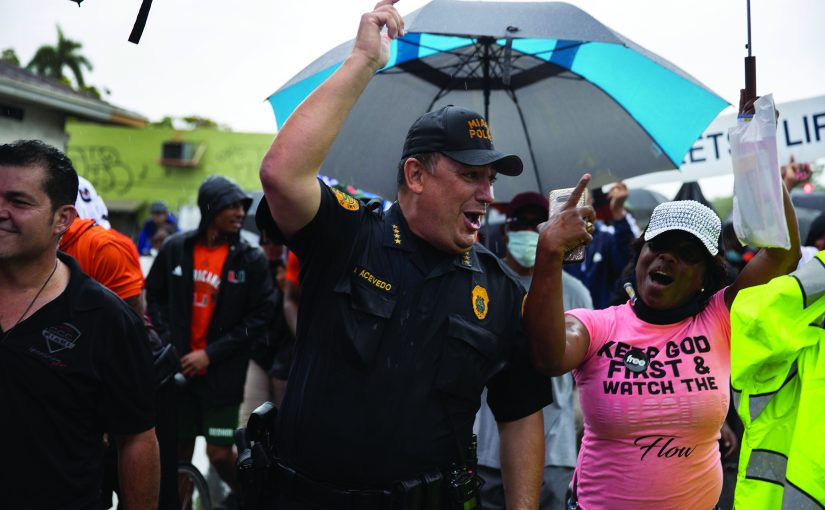Accountable and Inclusive Policing
Three Perspectives on Diversity and Equity

Criminals prey on the most vulnerable of our neighbors. It is these individuals’ vulnerability that makes them attractive to someone seeking to take something from them—whether that is their property, the sovereignty of their bodies, or control of their lives. Police leaders appreciate intuitively that the marginalization of their neighbors, resulting in a lack of access, agency, representation, and participation in crucial processes, increases people’s vulnerability and leads to greater potential for victimization. Some of the most historically marginalized portions of society include communities of color, immigrants, and the LGBTQ+ community. That marginalization can be multiplied where these communities intersect. When neighbors are marginalized, they feel they don’t have access to justice and the criminal justice system or that such access does not lead to positive outcomes for them, and they will often, understandably, stop engaging with the system. This lack of engagement further contributes to their marginalization and, hence, vulnerability. Conversely, actively celebrating diversity, providing ready access, and including all aspects of the community equitably through policies, practices, and diverse personnel will decrease marginalization and vulnerability and improve engagement and outcomes for individuals and communities.


